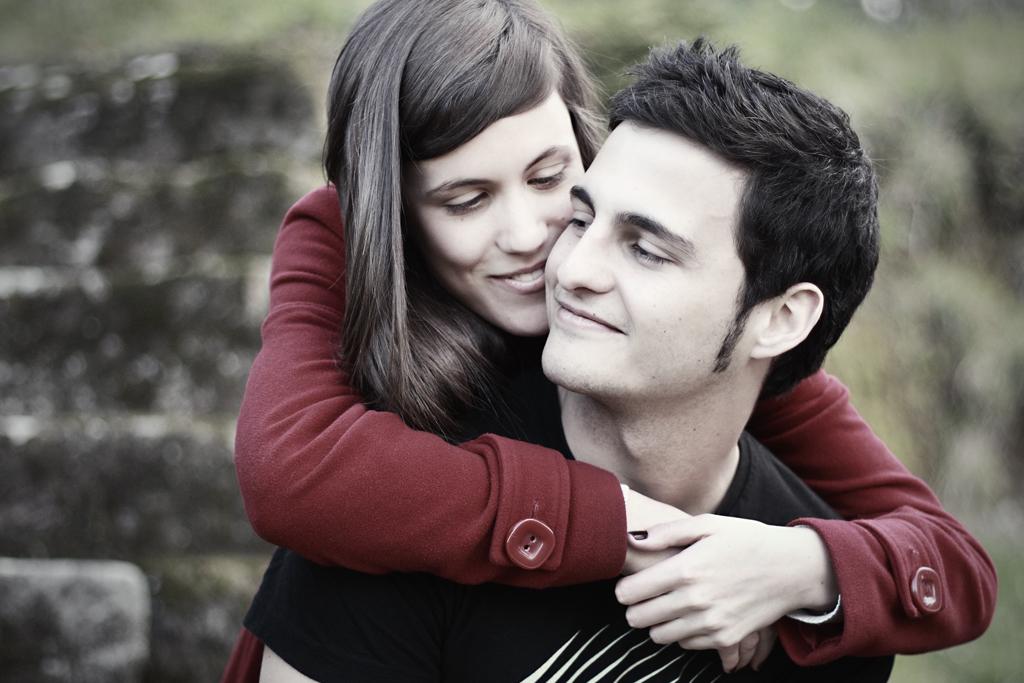In the movie “Just Friends”, we find the main character Chris (played by Ryan Reynolds in a fat suit), the token nerdy and overweight outcast, preparing to confess his love for his best friend Jamie. The opening scene is set at a high school graduation party, where Chris has poured out his feelings to Jamie in her yearbook, professing his wish to be her boyfriend. He tells her that, even though they’ve been friends for a really long time, he wants to be more than that. Jamie eventually discovers what Chris has written and confronts him about it, where she says that she loves him—like a brother. A kiss on the cheek and laughter from a crowd of stereotypical drunk jocks at the party leave Chris humiliated and heartbroken.
While this might be my favorite illustration of the concept, it’s one that is all too real. Men and women get into relationships with someone of the opposite sex, just to start having feelings for them or vice versa. It doesn’t always happen right away—often it builds over time. You see this person as a platonic friend, and the more you get to know them, they sometimes start to become more attractive to you. Then you’re caught in a position where you know you can’t be strictly friends with them, and that the attraction that you have for them is too strong to ignore. You’re left always wanting more, leading to having to break the news to them—and hoping for the best.
Turn this scenario around and it might sound even more familiar: you find out that your good friend actually secretly likes you. Let’s say that you don’t return the feelings. Now you’re left deciding which is worse, remaining friends knowing how this person feels or letting them down gently and hoping that your friendship won’t be damaged or ended because of your honesty. Either way you can’t win. Someone is going to get hurt.
I’ve had my fair share of both scenarios—either I liked a friend who didn’t feel the same way or I had male friends who developed feelings for me that I didn’t return. Even though both situations suck, the bottom line is you can’t force someone to want you back, so I understand that even though the disconnect is hard, it happens. What I can’t stand is when someone ends a friendship because you don’t want to pursue something more with them. More than once I’ve had a guy either blatantly tell me or communicate to me with his actions that he couldn’t remain being friends with me because I didn’t like him back or didn’t want to date him. It’s hurtful and seems unfair, but okay, I get it. It’s too hard to be strictly friends with someone you have feelings for. And really, why would you want to waste time with someone you like if you know they will never feel the same way?
If I haven’t convinced you yet, watch episodes of MTV’s “Friendzone”. If you’ve never seen it, let me break it down for you. The show centers on a duo of two self-proclaimed best friends, where one likes the other and wants to get out of the “friend zone”. Friend 1 pretends that they are they going on a blind date and needs Friend 2’s help in preparing for the occasion. In actuality, the date is for Friend 2, in which Friend 1 pours their heart out in an awkward moment of truth. There is one of two outcomes. Either Friend 2 blurts out that they’ve felt the same way forever and the two go on the date in a state of lovey-dovey bliss, or Friend 2 lets Friend 1 down easy, saying that they just want to be friends. When this happens and the show does an “update” a few weeks later, it’s more likely that the two don’t speak anymore and that they’ve gone their separate ways. Why? Because when feelings are involved in a friendship, it changes the dynamic completely.
You might say, I have plenty of friends of the opposite sex who I consider to be just my buddy. Hate to break it to you, but there is probably a 95% chance that your “buddy” sees you as much more than that. You might think that you are just friends, but your pal might have a different idea in mind. There is just too much chemistry, sexual or not, that makes it pretty difficult for two people of different genders to carry on a platonic friendship. It’s difficult—but is it impossible? Somehow, despite all of my personal experience, my answer is no.
To me, finding a guy that I can be friends with (with no feelings involved for either party) is like finding a unicorn. It’s rare, but when it happens, it’s fantastic. If you’re a woman and have male friends, it’s great to have their unique perspective to bring to the table. I love the amazing, upstanding men that I have in my life, but they took me a while to find. I’ve always been the kind of girl who has plenty of female friends, but ones of the male variety haven’t always been so easy to come by. Even now I try not to be so suspicious of every guy that comes into the picture, but because of past experience, I can’t help but be guarded.
I’d like to say that women and men can be just friends. I suppose for some people it’s entirely possible. But for me, that hasn’t always been the case. Is it conceited to say that I’ve generally found that guys can’t be just friends with me? Maybe. Is it frustrating? Completely. Someone has to know the secret to all of this madness. If they do, they should share it with me.







